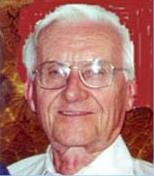The Lieberman-Warner global warming cap-and-trade bill (S2191) would cost “hundreds of billions of dollars” to the electrical and industrial sectors of the economy, Senator Joseph Lieberman (I-CT) conceded today. Senator Lieberman made the remarks during today’s Environment & Public Works (EPW) subcommittee markup on the bill.
“It’s hard to imagine that [Lieberman-Warner] will not cost - over time—these two sectors (electric power and industrial), hundreds of billions of dollars to comply with the demands of this bill,” Senator Lieberman said during the business meeting today. Senator Lieberman, along with Senator John Warner (R-VA), is the co-author of “America’s Climate Security Act.”
Senator James Inhofe (R-Okla.), Ranking Member of the EPW Committee, has already warned that the Lieberman-Warner bill is “real economic pain, for no climate gain.” “The Lieberman-Warner bill will burden American families with additional energy costs and significantly harm the United States economy,” Senator Inhofe said on October 18. “Senators are going to be asking the American people to pay more for home energy and pay higher prices at the gas pump for no climate benefit,” Senator Inhofe added. Inhofe also noted that former Federal Reserve chairman Alan Greenspan is very skeptical of cap-and-trade legislation. Greenspan wrote in his new book, The Age of Turbulence: “There is no effective way to meaningfully reduce emissions without negatively impacting a large part of an economy,” Greenspan wrote. “Net, it is a tax. If the cap is low enough to make a meaningful inroad into CO2 emissions, permits will become expensive and large numbers of companies will experience cost increases that make them less competitive. Jobs will be lost and real incomes of workers constrained.”
Senator Boxer said: “With passage of the Lieberman-Warner bill through the Senate Environment and Public Works Subcommittee we are finally on our way toward preventing the ravages of unfettered global warming.
Read Senators Boxer and Inhofe debate the Lieberman bill.
By Paul Georgia, Frontiers of Freedom
The release of Al Gore’s power point presentation put to film, An Inconvenient Truth, was probably the highpoint of a decades-long campaign to convince people that they are destroying the planet, and to avoid disaster must give up much of what makes life pleasant. As is generally the case with such campaigns, it is difficult to sustain such a high pitch over time without being tuned out, especially when the climate doesn’t cooperate (there’s been no warming since 1998).
Moreover, by overplaying his hand (many of the film’s claims are wildly implausible), Mr. Gore has initiated a backlash. Scientists, heretofore absent from the global warming debate, have begun to criticize Mr. Gore, and by extension, much of the underpinnings of the global warming hypothesis. One such critic is Professor Scott Armstrong, a leading expert on forecasting. Professor Armstrong hasn’t just criticized Mr. Gore; he has put his money where his mouth is by challenging the former VP to a $10,000 bet, based on climate predictions.
Professor Armstrong, along with his colleague Professor Kesten Green with Monash University’s Business and Economic Forecasting Unit in New Zealand, conducted an audit of Chapter 8 of the IPCC’s Working Groups I report, The Physical Science Basis. First, they found no evidence that the IPCC authors were aware of the primary sources of information on forecasting. Moreover, in conducting their audit, they determined that there was only enough information within the IPCC report to make a judgment on 89 of the total 140 forecasting principles as described in Professor Armstrong’s book, Principles of Forecasting. Of these 89 principles, the IPCC violated 72. Read more here.
By Lawrence Solomon, Financial Post
Vincent Gray has begun a second career as a climate-change activist. His motivation springs from the United Nations’ Intergovernmental Panel on Climate Change, a body that combats global warming by advocating the reduction of carbon dioxide and other greenhouse gases. Dr. Gray has worked relentlessly for the IPCC as an expert reviewer since the early 1990s. “The whole process is a swindle,” he states, in large part because the IPCC has a blinkered mandate that excludes natural causes of global warming.
The Framework Convention on Climate Change (FCCC) 1992 defined ‘climate change’ as changes in climate caused by human interference with atmospheric composition,” he explains. “The task of the IPCC, therefore, has been to accumulate evidence to support this belief that all changes in the climate are caused by human interference with the atmosphere. Studies of natural climate change have largely been used to claim that these are negligible compared with ‘climate change.’
Dr. Gray is one of the 2,000 to 2,500 top scientists from around the world whom the IPCC often cites as forming the basis of its findings. No one has been a more faithful reviewer than Dr. Gray over the years—he has been an IPCC expert almost from the start, and perhaps its most prolific contributor, logging almost 1,900 comments on the IPCC’s final draft of its most recent report alone.

But Dr. Gray, who knows as much about the IPCC’s review processes as anyone, has been troubled by what he sees as an appalling absence of scientific rigour in the IPCC’s review process. “Right from the beginning, I have had difficulty with this procedure. Penetrating questions often ended without any answer. Comments on the IPCC drafts were rejected without explanation, and attempts to pursue the matter were frustrated indefinitely.
Other expert reviewers at the IPCC, and scientists elsewhere around the globe, share Dr. Gray’s alarm at the conduct of the IPCC. An effort by academics is now underway to reform this UN organization, and have it follow established scientific norms. Dr. Gray was asked to endorse this reform effort, but he refused, saying: “The IPCC is fundamentally corrupt. The only ‘reform’ I could envisage would be its abolition.” here.


